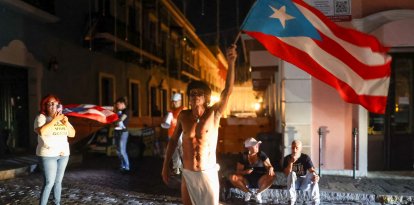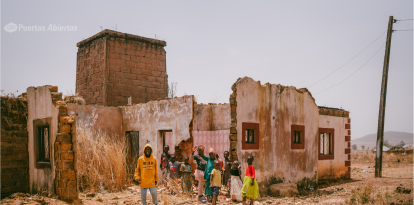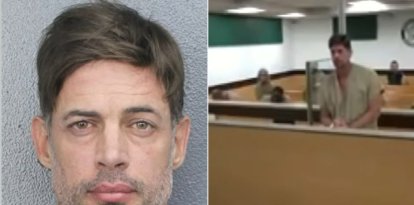Bad news for activist Mahmoud Khalil: an immigration judge ruled he can be deported
Judge Jamee E. Comans backed the arguments of the White House, from where they assured that the student's presence in the country presents "potentially serious foreign policy consequences."
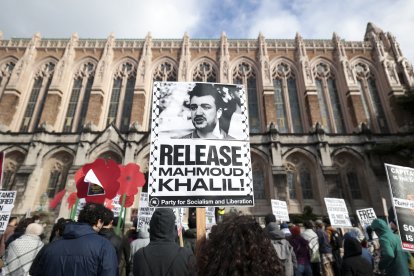
Activists calling for Khalil's release/Jason Redmond
Complicating matters for Mahmoud Khalil, the pro-Palestinian activist who was detained in early March after the State Department revoked both his student visa and his Green Card. After a month of detention for the 30-year-old student, an immigration judge ruled that he can be deported, backing the White House's arguments.
According to counsel Jamee E. Comans, from the Trump administration, provided "clear and convincing evidence" that Khalil can be considered for a deportation, arguing that his presence in the United States does indeed represent "potentially serious foreign policy consequences."
Earlier this week, Comans had asked the government to provide evidence on the dangerousness of Khalil's presence, since otherwise he would dismiss the case. Finally, the judge agreed with the arguments presented by the White House.
According to the activist's lawyers, the strategy is to continue fighting judicially and request a waiver. Weeks earlier, another New Jersey judge had temporarily barred the deportation.

Society
DHS confirms arrest of Georgetown student linked to high-ranking Hamas advisor
Emmanuel Alejandro Rondón
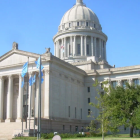
JNS
Oklahoma Senate passes legislation combating Jew-hatred in public schools
JNS (Jewish News Syndicate)
Khalil's arrest came just days after it was reported that the State Department would begin canceling the visas of foreign students who support terrorist groups, especially Hamas. The young man is part of the Columbia University Apartheid Divest (CUAD), a group that supports the "armed resistance" of Hamas.
Indeed, the Palestinian-born student was one of the CUAD leaders who organized the camps on campus. "And we’ve been working all this summer on our plans, on what’s next, to pressure Columbia to listen to the students and to decide to be on the right side of history. We’re considering a wide range of actions throughout the semester, encampments and protests and all of that. But for us, encampment is now our new base," Khalil noted in August 2024.
RECOMMENDATION

